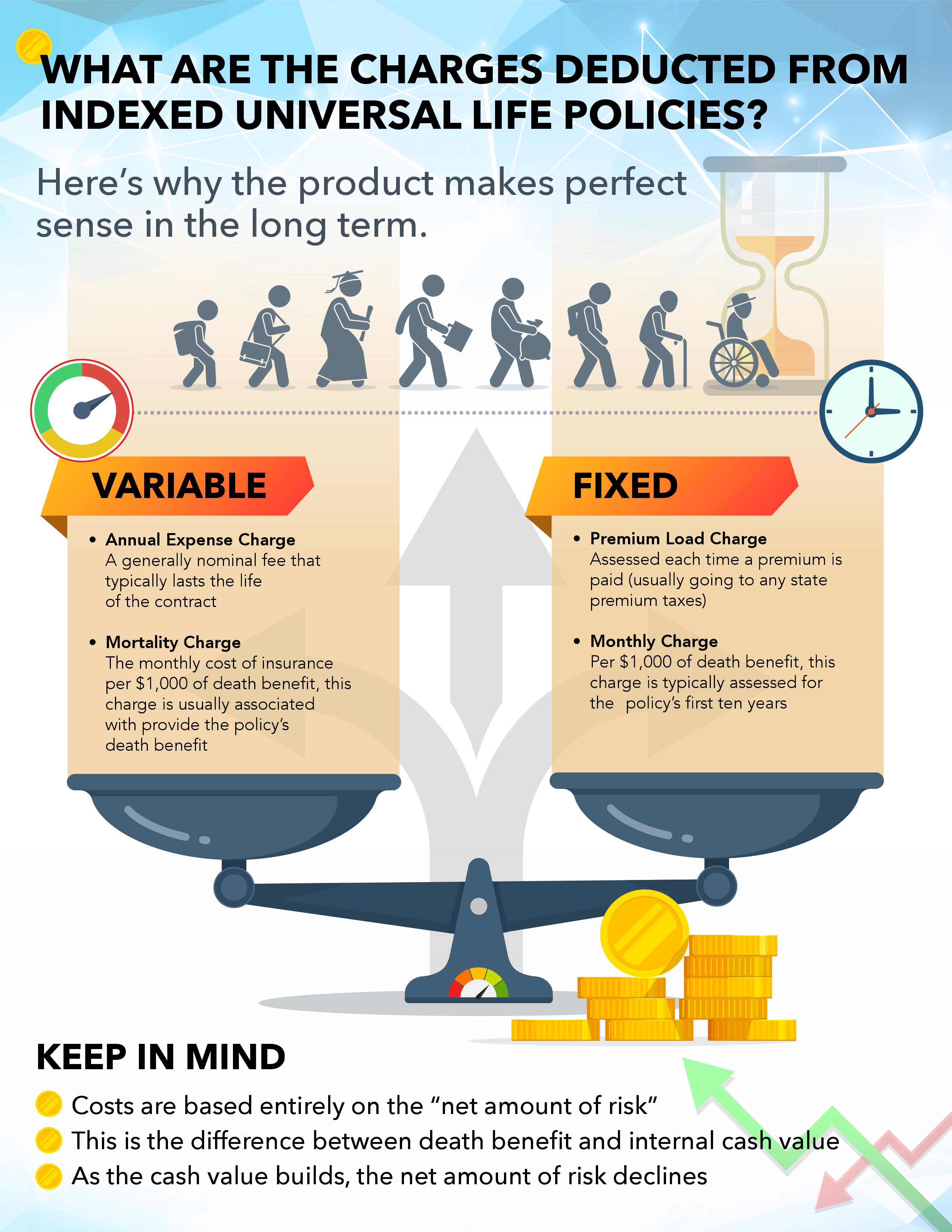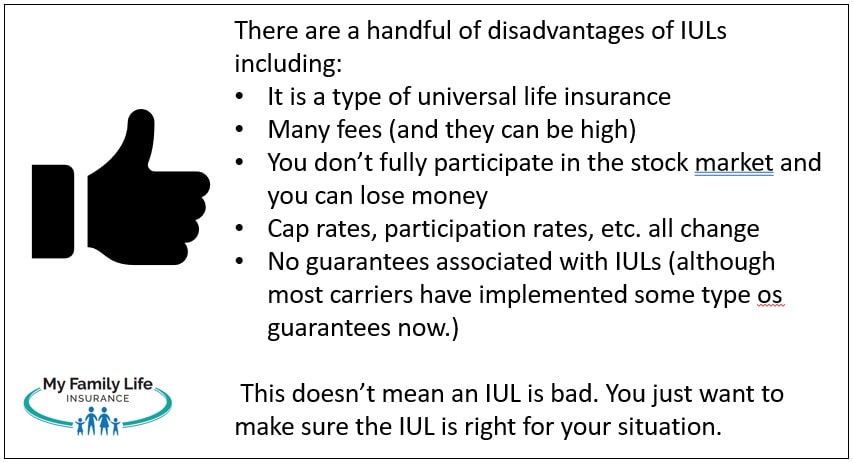All Categories
Featured
Table of Contents
- – What does Indexed Universal Life Interest Cred...
- – What are the top Indexed Universal Life Invest...
- – Who are the cheapest Guaranteed Interest Inde...
- – How can I secure Indexed Universal Life Tax B...
- – Who are the cheapest Iul Protection Plan pro...
- – How do I compare Long-term Iul Benefits plans?
Indexed Universal Life (IUL) insurance is a kind of long-term life insurance policy policy that integrates the attributes of conventional universal life insurance policy with the potential for cash worth development connected to the efficiency of a securities market index, such as the S&P 500 (IUL cash value). Like other types of permanent life insurance policy, IUL provides a death benefit that pays out to the recipients when the insured passes away
Money worth buildup: A portion of the premium payments goes right into a cash money value account, which gains rate of interest in time. This cash worth can be accessed or borrowed against throughout the policyholder's lifetime. Indexing option: IUL plans offer the possibility for cash money value development based upon the efficiency of a securities market index.
What does Indexed Universal Life Interest Crediting cover?
Similar to all life insurance policy products, there is also a collection of risks that insurance holders must be aware of before considering this sort of plan: Market threat: Among the key threats connected with IUL is market danger. Considering that the cash worth growth is linked to the efficiency of a securities market index, if the index chokes up, the cash worth may not grow as expected.

Enough liquidity: Insurance holders should have a steady monetary circumstance and fit with the premium repayment needs of the IUL policy. IUL allows for adaptable premium payments within specific restrictions, however it's necessary to maintain the policy to guarantee it attains its designated purposes. Rate of interest in life insurance policy protection: People who require life insurance policy protection and a passion in cash worth growth may locate IUL attractive.
Candidates for IUL ought to be able to recognize the technicians of the plan. IUL may not be the best choice for individuals with a high tolerance for market risk, those who focus on affordable financial investments, or those with even more instant monetary demands. Consulting with a certified monetary expert who can offer tailored support is vital before thinking about an IUL policy.
All registrants will receive a schedule invite and link to sign up with the webinar via Zoom. Can't make it live? Register anyway and we'll send you a recording of the presentation the next day.
What are the top Indexed Universal Life Investment providers in my area?
You can underpay or skip premiums, plus you may be able to adjust your fatality benefit.
Money value, along with possible growth of that worth via an equity index account. A choice to allot part of the cash money worth to a fixed interest choice.
Insurance policy holders can decide the portion assigned to the dealt with and indexed accounts. The value of the selected index is videotaped at the beginning of the month and contrasted with the value at the end of the month. If the index boosts throughout the month, passion is included in the cash money worth.
The resulting rate of interest is added to the cash money value. Some plans calculate the index gains as the sum of the modifications for the duration, while various other policies take a standard of the everyday gains for a month.
Who are the cheapest Guaranteed Interest Indexed Universal Life providers?
The price is established by the insurer and can be anywhere from 25% to greater than 100%. (The insurance provider can also change the take part price over the lifetime of the plan.) If the gain is 6%, the engagement rate is 50%, and the present cash worth total is $10,000, $300 is included to the cash value (6% x 50% x $10,000 = $300).
There are a number of advantages and disadvantages to think about before acquiring an IUL policy.: Similar to conventional universal life insurance policy, the insurance policy holder can enhance their costs or lower them in times of hardship.: Amounts attributed to the money worth expand tax-deferred. The cash value can pay the insurance policy costs, permitting the insurance policy holder to minimize or quit making out-of-pocket costs settlements.
How can I secure Indexed Universal Life Tax Benefits quickly?
Many IUL plans have a later maturity date than various other types of universal life plans, with some finishing when the insured reaches age 121 or even more. If the insured is still alive during that time, policies pay the survivor benefit (yet not generally the money worth) and the profits might be taxed.

: Smaller plan stated value don't use much advantage over normal UL insurance policies.: If the index decreases, no interest is attributed to the cash worth. (Some policies provide a low ensured rate over a longer duration.) Other financial investment lorries use market indexes as a standard for efficiency.
With IUL, the goal is to benefit from higher activities in the index.: Due to the fact that the insurer only acquires alternatives in an index, you're not directly spent in stocks, so you don't benefit when companies pay rewards to shareholders.: Insurers cost fees for handling your cash, which can drain cash money worth.
Who are the cheapest Iul Protection Plan providers?

For the majority of people, no, IUL isn't far better than a 401(k) - Long-term Indexed Universal Life benefits in terms of saving for retired life. The majority of IULs are best for high-net-worth people trying to find means to decrease their taxable income or those who have maxed out their various other retired life options. For every person else, a 401(k) is a much better financial investment car due to the fact that it doesn't bring the high costs and costs of an IUL, plus there is no cap on the quantity you may gain (unlike with an IUL plan)
While you might not shed any money in the account if the index goes down, you will not gain rate of interest. If the marketplace transforms favorable, the incomes on your IUL will certainly not be as high as a common financial investment account. The high price of costs and costs makes IULs expensive and considerably much less economical than term life.
Indexed global life (IUL) insurance coverage provides cash money worth plus a survivor benefit. The cash in the cash value account can make passion via tracking an equity index, and with some frequently alloted to a fixed-rate account. Nonetheless, Indexed global life plans cap exactly how much money you can collect (often at much less than 100%) and they are based upon a possibly volatile equity index.
How do I compare Long-term Iul Benefits plans?
A 401(k) is a better choice for that function because it does not carry the high fees and premiums of an IUL plan, plus there is no cap on the amount you may make when spent. The majority of IUL policies are best for high-net-worth people looking for to reduce their taxed income. Investopedia does not provide tax, financial investment, or monetary solutions and guidance.
If you're considering getting an indexed global life plan, first consult with an economic consultant that can clarify the subtleties and give you an exact image of the real possibility of an IUL policy. Ensure you understand exactly how the insurance provider will certainly calculate your rate of interest, earnings cap, and fees that may be evaluated.
Table of Contents
- – What does Indexed Universal Life Interest Cred...
- – What are the top Indexed Universal Life Invest...
- – Who are the cheapest Guaranteed Interest Inde...
- – How can I secure Indexed Universal Life Tax B...
- – Who are the cheapest Iul Protection Plan pro...
- – How do I compare Long-term Iul Benefits plans?
Latest Posts
Maximum Funded Tax Advantaged Insurance Contracts
Iul Nationwide
Indexed Universal Life Express Mutual Of Omaha
More
Latest Posts
Maximum Funded Tax Advantaged Insurance Contracts
Iul Nationwide
Indexed Universal Life Express Mutual Of Omaha